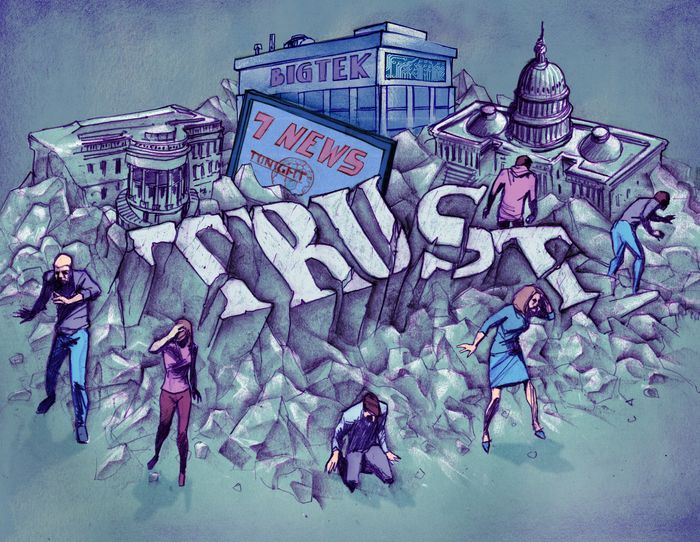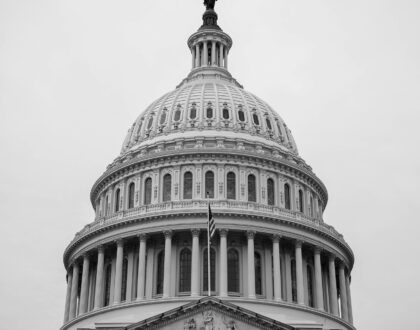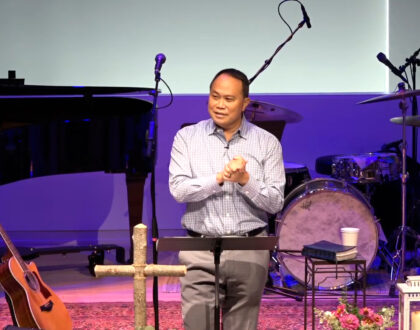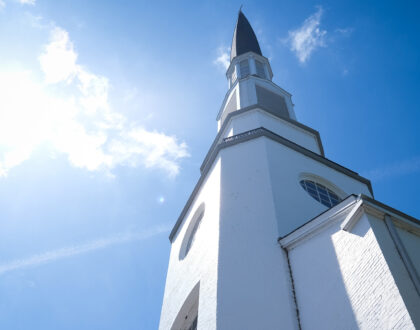Our Society’s Erosion of Trust

When historians look back on the late 20th and early 21st century, it will be marked as a time of declining trust in American institutions. This has been true in government, medicine, higher education, business, technology, and religion. A recent article in The Wall Street Journal by Gerard Baker titled “From Trust to Bust” gets very specific in naming the controversies by actually listing some specific historical examples of situations where trust has been diminished. These include:
• The claim of weapons of mass destruction in 2003 that led to the invasion of Iraq. The weapons never materialized.
• Bankers in 2008 who said the financial system was sound and solvent.
• Technology companies who told users that their personal data was secure only later to have it breached.
• Big businesses who turned to extreme woke ideology
• Lawmakers of both parties who have said they are controlling illegal immigration only to have massive amounts of illegals streaming across the border
• Claims of Russian election interference in the 2016 election
• Claims of a stolen election in 2020
• Health officials telling everybody to follow the science but the science seemed to change with politics
All of these things have played a role in getting us where we are today. Combined with social media addictions and bitter partisanship, it has been a challenging stretch for American society.
It is not just institutions that have suffered because of this, individuals are now much less likely to trust each other. The article states, “The rapid loss of confidence is startling and unprecedented. It has ominous implications for the cohesion, prosperity, and even survival of the U.S. Trust is the essential feature that allows a society to function – more important the more modern and complex society grows.” Simply put, we are all suffering from this deficit of trust in our culture. The church has certainly not been immune to this. With sex scandals, political infighting, and overt partisanship, many have turned away from organized religion, even if still maintaining a strong personal faith and spirituality.
What can be done? That is the question that needs to be asked and answered. What can we do as people of faith to build a society where trust is restored? Here are some thoughts:
Seek to always tell the truth. That sounds obvious but people often shy away from the truth because it is uncomfortable. Jesus said, “You will know the truth, and the truth will make you free.” When you tell the truth, you don’t have to remember what you said. Unfortunately, we seem to be living in an age where basic facts are disputed. Patrick Mooneyhan once said, “You are entitled to your own opinion but not to your own facts.” We should tell the truth, at least as we understand it.
Become friends with people who have different politics, ideologies, and backgrounds. In the age of social media, homogeneous echo chambers have become a big problem. If we are only around people who agree with us, how will we ever be challenged? How will we ever grow and expand our worldview?
Seek the goodness in people. So many times we look for what is wrong or what we don’t like. We all have good in us because we are all children of God. Let’s learn to focus more on what unites and brings us together rather than what divides.
Let others know when they have betrayed your trust. What often happens is somebody betrays our trust and we write them off. What if we took the time to say, “This was very hurtful and it will be difficult for me to trust you again.” At least that person can learn.
Become an intentional listener. Too many people don’t hear the truth because they stop listening. Our society is noisy because too many are talking and not enough are listening. We have two ears and one mouth.
All of us play an important role in rebuilding trust in our culture. Trust is the currency of healthy relationships. We must work to build it and sustain it.
Recommended Posts

Political Violence is Never the Answer
July 25, 2024

“Messenger” – Justin Gung – July 14
July 14, 2024

Celebrating Woodmont’s 81st Birthday
July 10, 2024

